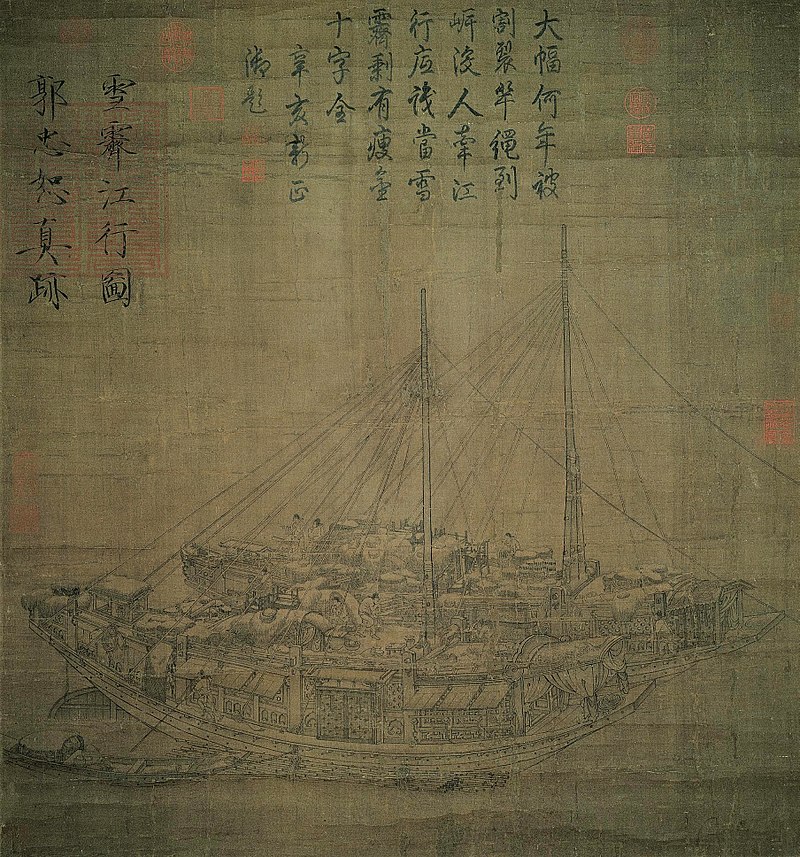- Ink Wang (fl. 785-805) is mentioned in two early Chinese art histories. Chu Ching-hsuan , writing in around 840, described his approach as follows. 'When Wang was ready to paint a scroll, he would begin drinking, and after he became drunk he would splash ink on the silk, laughing and singing all the while. He would kick at it, or smear it with his hand, sweeping and scrubbing with his brush, here with pale ink there with dark, and from the configurations thus achieved, mountains, rocks, clouds and rivers would emerge.' The other historian to mention him is Chang Yenyüan (Zhang Yanyuan) in 847, who claimed that Wang would soak his topknot in ink and butt his head against the scroll.
- Lachman goes on to describe a kindred spirit, "a certain Mr. Ku", active in the late eighth century. 'When he was ready to paint, he would first lay out numerous pieces of silk on the floor; then he would grind the ink and prepare various colours, and put them into containers. After he became a bit tipsy from wine, he would then run around the silk several dozen times, finally taking the ink and spilling it all over. Next he would sprinkle on the colours. The places where they spilled he would cover with a large cloth; then he would have someone sit on it, while he himself grasped it by one corner and pulled it all around. After he was finished, he would then add the finishing touches with a brush.' Quite what emerged from this process - landscapes or other subject matter - his source does not say.
- Finally there was the Mountain Man of Fan-yang, a hermit who pioneered a form of water painting. 'It required a ten-foot-square pit dug about one foot deep, with its floor and walls plastered over with clay and then filled with water. The painter then prepared ink and pigments which he freely brushed on the surface of the water, creating a chaotic swirl of colours. After several days, when the water had seeped out of the pit, he put strips of fine silk on the floor of it, and made a rubbing that, when removed, showed aged pines, bizarre rocks, people, animals, houses, and trees.'
Kuo Chung-shu, Travelling on the River in Snow, latter half of 10th century

Intriguing... It's obviously reminiscent of Leonardo's famous quote about finding landscapes in random patterns ("Look at walls splashed with a number of stains, or stones of various mixed colours", etc.), but -- and I'm guessing you're not an aficionado of Kung Fu movies -- it's also rather reminiscent of the "drunken fist" genre, most memorably portrayed by Jackie Chan in "The Drunken Master".
ReplyDeleteMike
Ah, you guess correctly - although I did buy records by the Wu-Tang Clan and watched a couple of Bruce Lee films many years ago, I'm woefully ignorant on the subject of Kung Fu. From what I have just been looking at online though, Drunken Fist (Zui Quan) looks like a fascinating subject with a long history.
ReplyDelete